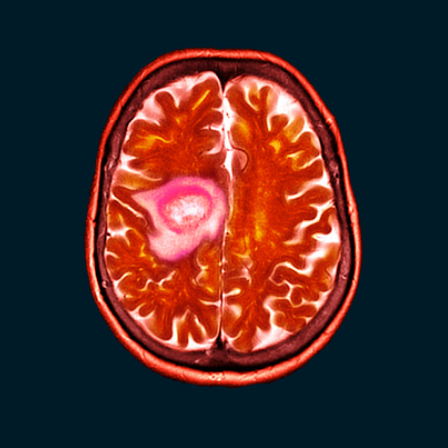Recurrent Glioblastoma (GBM)
The deadliest, most common type of brain cancer in adults, primarily due to the treatment-resistant infiltrative nature of the tumor and its location in the brain, which makes drug delivery highly difficult.
Leptomeningeal Metastases (LM)
A rare, typically fatal cancer where tumor cells spread to the central nervous system (CNS), often leading patients to choose between a variety of highly toxic treatments that can prolong life or a less painful life that may end just months from diagnosis.
Pediatric Brain Cancer (PBC)
The second most common type of cancer in children, accounting for approximately 26% of childhood cancers, that often leaves patients with limited options that are not invasive or highly toxic.
Primary Liver Cancer
Known as Hepatocellular Carcinoma (HCC), the most common type of liver cancer with fatty liver disease and cirrhosis as main risk factors, as well as many treatments options, though none significantly prolong survival.







